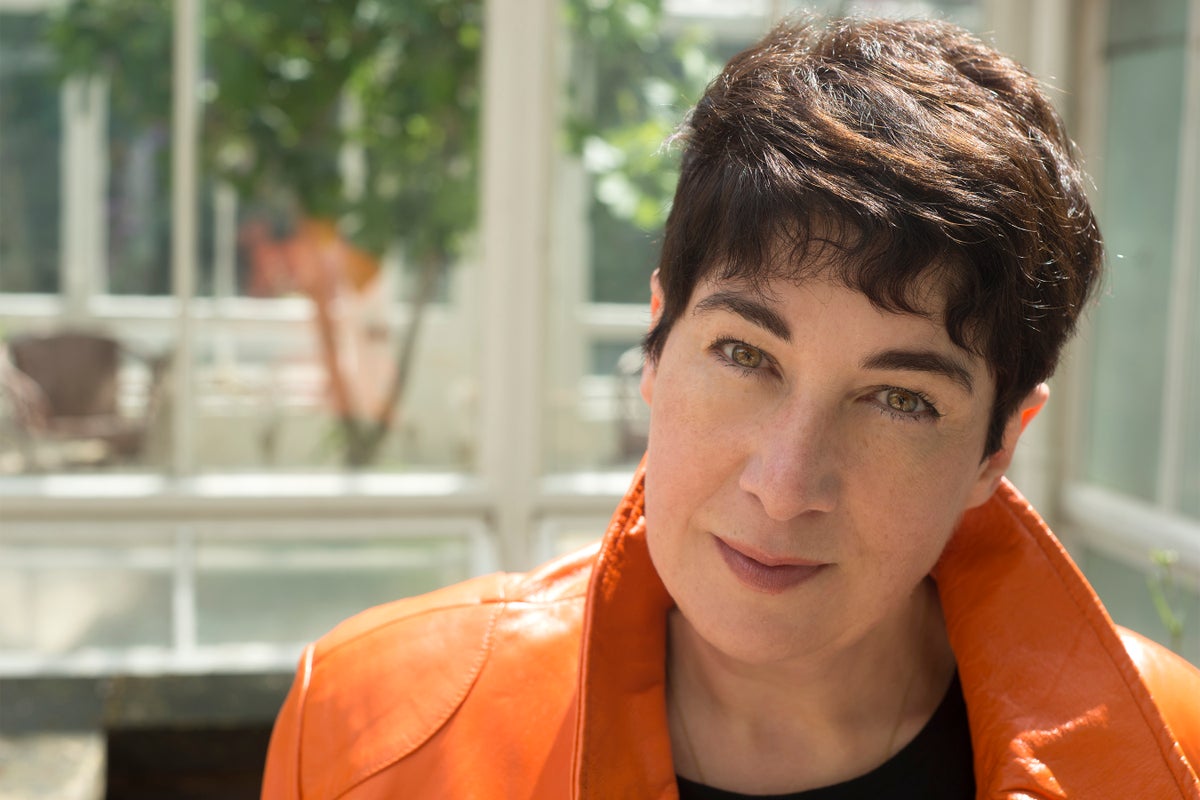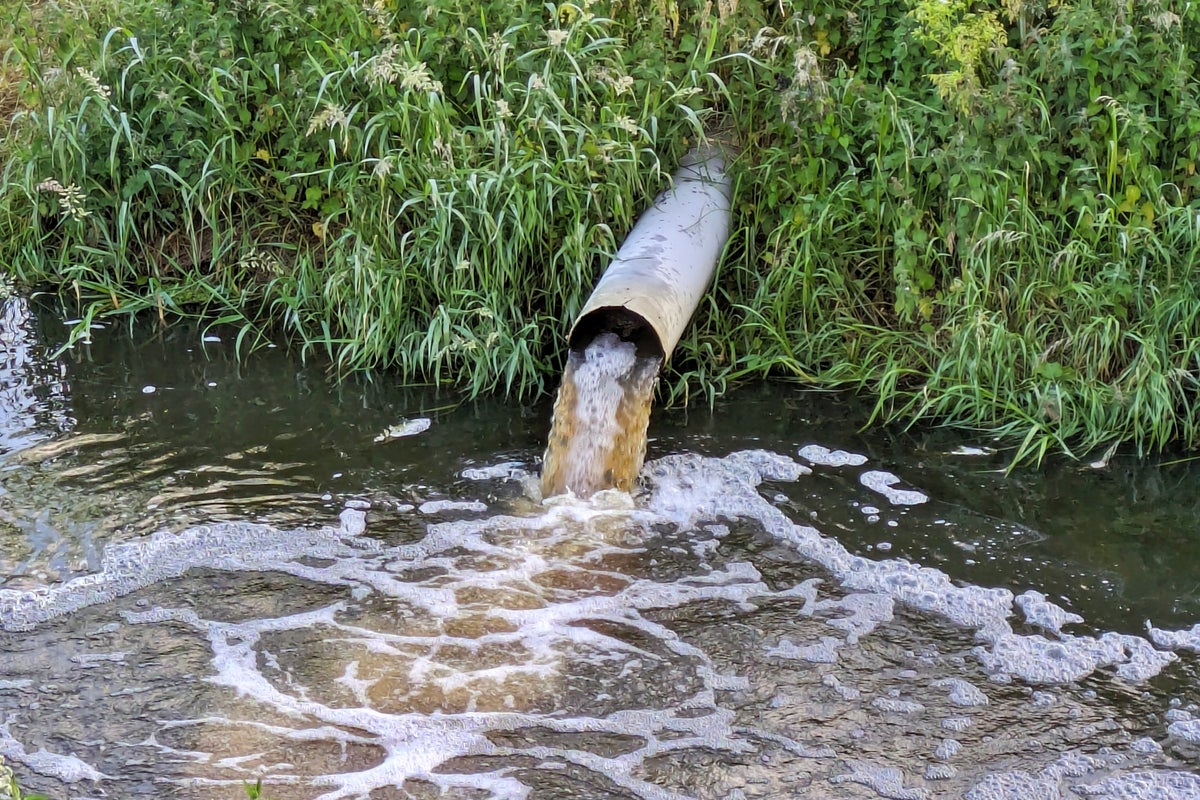Author Joanne Harris is not Vianne, her most famous character, and vice versa. Obvious as that may seem, readers often get the wrong idea: “She’s not me, and people have sometimes been very disappointed to find that I’m not her.” That’s the problem with writing such a beloved fictional creation – people desperately want the enchanting protagonist of Harris’s phenomenally popular bestseller Chocolat, and its three sequels (The Lollipop Shoes, Peaches for Monsieur le Curé and The Strawberry Thief), to be somehow real.
The first book was adapted, back in 2000, into a sumptuous film starring Juliette Binoche and Johnny Depp, which in turn sparked further Vianne fever; following the movie’s release, Chocolat the novel sold more than a million copies. Now, 25 years after she first walked onto the page, the French heroine afflicted with eternal wanderlust, who weaves magic into her confectionery, is back. This time, we’re getting her origin story in a prequel, titled Vianne.
On the face of it, Harris is right – she is “nothing like Vianne”. While the latter feels the call of the wind tempting her to keep travelling from place to place, the former has planted deep roots. Harris still lives in her native Yorkshire, barely 10 miles from where she grew up. “No, I don’t have itchy feet when it comes to wanting to move,” she says. “I like to stay in one place, and I like a home to be somewhere that I’ve been involved with for years.”
And, while Harris clearly adores food – a love that jumps off the page in her books, filled as they are with a multisensory symphony of tastes and smells so glorious you almost find yourself drooling – she also doesn’t quite have Vianne’s passion and skill in the kitchen. “I wouldn’t go out of my way to spend 12 hours making a cassoulet,” Harris confesses. “I know my limitations; I’m much better at writing about food than I am at actually making it!”
However, there are undoubtedly similarities hidden beneath the more obvious differences. Part of the reason Harris felt that now was the time to write a prequel was because of where we’d left Vianne in The Strawberry Thief – one daughter on the cusp of flying the nest, the other already gone. “I thought, maybe this is the time where you have to look back to where you came from before you can look forward to where you’re going,” says the author, a mother herself to an adult son. “That was a powerful idea for me.”
Does Harris, at 60, feel a similar need to look back at the past? “I think, inevitably, anybody in that position does – you reach a certain age and you start to think: who am I? Where did I come from? Where am I going? What next?”
Harris’s own mother is French, a fact that perhaps explains the francophile focus in much of the author’s writing. The new novel is set in Marseille, France’s diverse second city – which, says Harris, fascinated her because of its duality. “It’s a city of two halves,” she explains. “It’s got this dark underbelly, and it’s also got this beautiful touristy side, and it’s got this monumental basilica on the hill, with the golden statue of the mother and child, which is such a powerful theme in the book – motherhood and what it means – that I thought, ‘OK, this is the picture in my mind of the city I want to start in.’”
It’s also a city with a rich and complex culinary scene: the city of bouillabaisse (fish stew), panisse (chickpea fritters), and navettes (aromatic biscuits). And food is at the heart of every book in the Chocolat series, fundamental to how Vianne both makes sense of each new destination she calls home, and starts to help the locals heal through her domestic brand of witchcraft. Does it sadden Harris that the current proliferation of weight-loss injections is demonising food – creating a culture in which eating is seen as a kind of necessary evil rather than something to take pleasure in?
“Remember, this isn’t new,” she points out. “The demonising of food goes back centuries. Food has always had its political side and its darkness – and there has always been a general fear around the pleasure of food and the ‘sin’ of gluttony.”
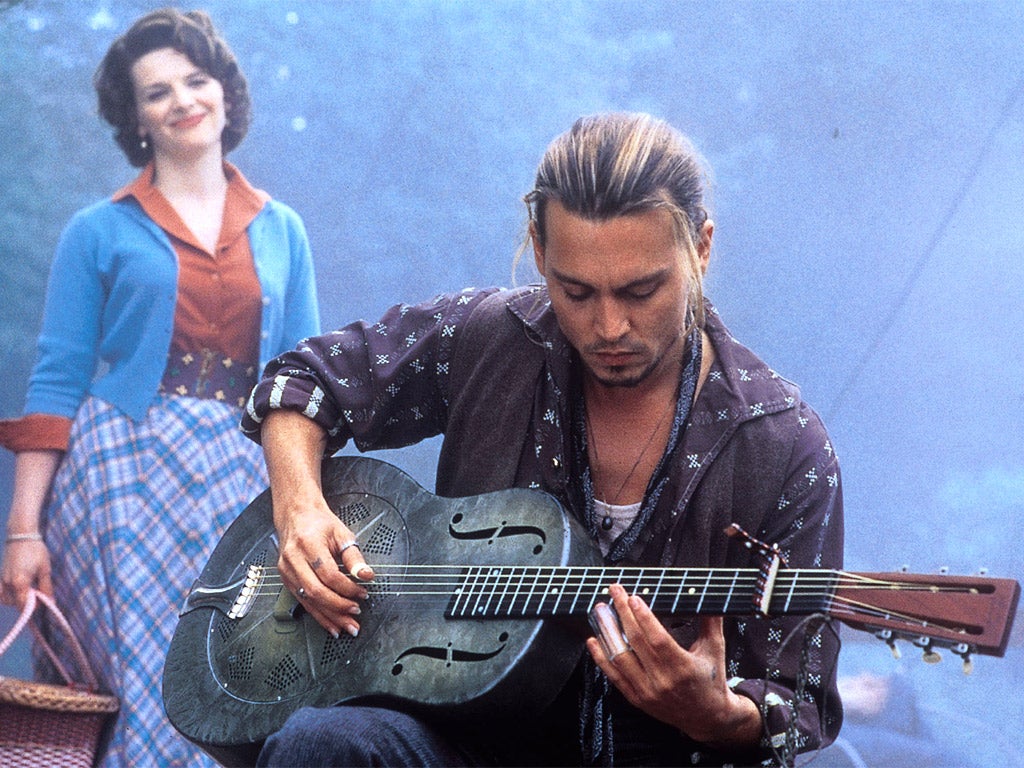
It’s an idea that she explored way back in 1999 with Chocolat – that enjoying food is aligned with a lack of self-control, while fasting and restriction are equated with holiness and goodness. “This idea that food is the enemy is very much a product of various religious traditions,” she adds. And, though the Church’s influence has undoubtedly diminished, “we’re still in a difficult position around food as a Western society, because we are constantly told that some things are bad for us, and then we’re told that they’re not bad for us, that something else is bad for us. We are constantly led to believe that what we eat, and how much we eat, is going to relate to our value and attractiveness as human beings.”
But back to Vianne. She arrives in Marseille from New York, pregnant, alone, grieving her recently deceased mother, and with very little in the way of resources. At first, the city’s tight-knit community is inherently distrustful of someone it regards as a foreigner;Vianne has spent her entire life on the move. It’s a theme that runs through the other books in the series – the notion of forever being the “outsider” and struggling to fit in. I wonder whether things have progressed; whether Vianne would be any more accepted in today’s world than she was in the Nineties.
“I wish I could say yes,” says Harris. “I’m not sure I can, because we are, at the moment, in a backlash against the tolerance and diversity of those decades. I think there is definitely a push to the right and towards eliminating the outsider, and suspicion of people who come from elsewhere.”
It’s easy to blame this wariness towards the unfamiliar on human nature, but Harris argues it is “politically driven”: “Certain types of government find it useful to find someone to demonise. And right now, immigrants are often those people, and Vianne is very much an immigrant. She doesn’t belong anywhere, and she doesn’t even have a passport that’s valid, so she has no idea where she belongs.” It feels particularly poignant given Keir Starmer’s recent speech in which he declared that unfettered immigration risks the UK “becoming an island of strangers” and promised to “take back control of our borders”.
When I ask who she could envisage playing the young Vianne if the latest book were adapted for screen, Harris refrains from dropping specific names, but does say she would love to see an actor of colour play the role. “There are lots of little hints in Chocolat” that Vianne presents as an outsider, ethnically speaking, in a very white community – “so that, to me, would be very much in the spirit of the story,” concludes Harris.
Harris has always been a prominent voice in the literary world when it comes to equality, diversity and inclusion – both in her writing and outside of it. While chair of the Society of Authors (SOA), a post in which she served for the maximum two consecutive terms from 2020 to 2024, she unwittingly became the target of a transphobic campaign. After falling foul of JK Rowling supporters, Harris, whose son is trans, received death threats and abhorrent online trolling; a small but very vocal minority of opponents (unsuccessfully) attempted to oust her from the SOA post in 2022 due to her support of trans rights.
While she understandably isn’t particularly keen on rehashing the topic, Harris says that we still have “a long way to go on inclusivity in general” and that “there’s still a lot of hostility generally towards trans people, as there is to many people who are perceived as different”.
“I’ve always been on the side of the outsider, and I’ve always used Vianne to [embody] that statement, that perspective,” she adds.
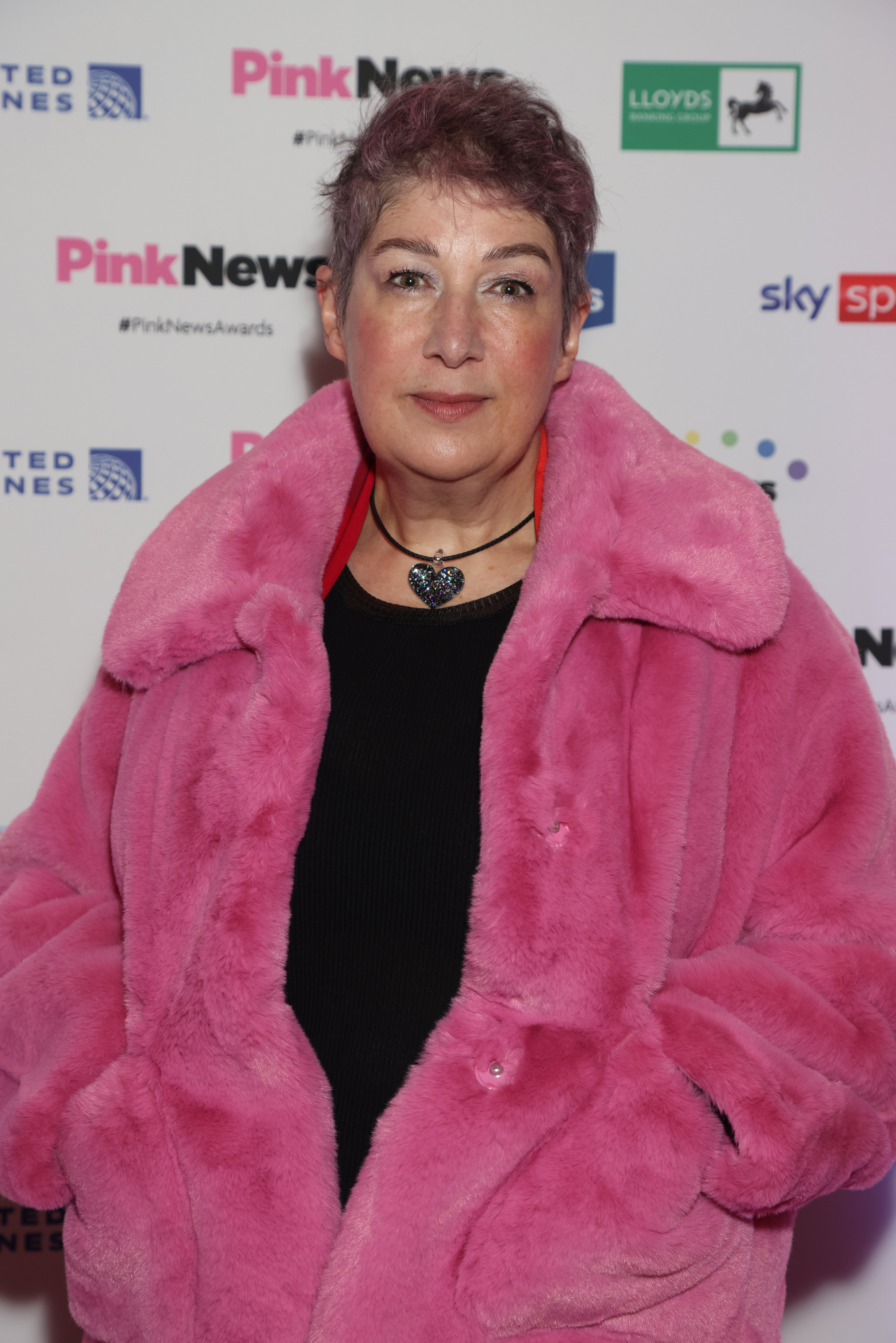
Harris’s latest cause is protesting against the onslaught of AI in the creative arts. Earlier this year, she signed an open letter, alongside Richard Osman, Kate Mosse and Val McDermid, calling for the UK government “to hold Meta accountable over its use of copyrighted books to train artificial intelligence”. AI is, she argues, an “existential threat”.
“We already have AI replacing illustrators, graphic novelists, colourists, journalists, translators – the sort of people who are also part of the creative community,” she says. “And we need to be aware that their part is important. This is about the whole creative industry.” A creative industry that, as Harris points out, provides billions to the UK economy. “And still our government doesn’t understand that, chasing this illusion that AI is the future, somehow it’s going to make us all rich… It’s really just sucking up to tech bros who have a lot of money but no imagination, and no idea where creative work really comes from,” she laments.
Harris paints a bleak future for the arts if AI is allowed to push out human creators; a future in which AI is fed on other AI-generated material, and left to vomit out content of deteriorating quality until all that’s left is “garbage”. “It’s a kind of petri dish, which is going to proliferate until eventually it runs out of food and it will die,” she predicts. “Unfortunately, by then, the industry may well also have died, and this is what we’re afraid of.”
I posit that AI can never successfully replace humans because we instinctively seek out connection through the culture we consume, whether it be books, plays, film, TV, art or music. I enjoyed reading Vianne, with all its colours and scents and tastes, because I knew it had been written by another person – one with the ability to actually go to Marseille and eat a bouillabaisse, for example. Take away that human element, and the connection is broken.
“We make art to communicate with people,” Harris agrees. “We don’t want to communicate with machines. AI may well be cheaper, but it won’t be better, and it won’t give people what they need – which is the fact that you are sharing your human, lived experience with another human, who will possibly see the world in a slightly different way after reading it. We do this because we want to share our dreams. We don’t want machines to dream for us.”
My head still full of Vianne’s complex and beautiful recipes, I compare AI to filling up on junk food instead of a nourishing, home-cooked meal. “Yes, and we know what that does to people…” says Harris darkly.
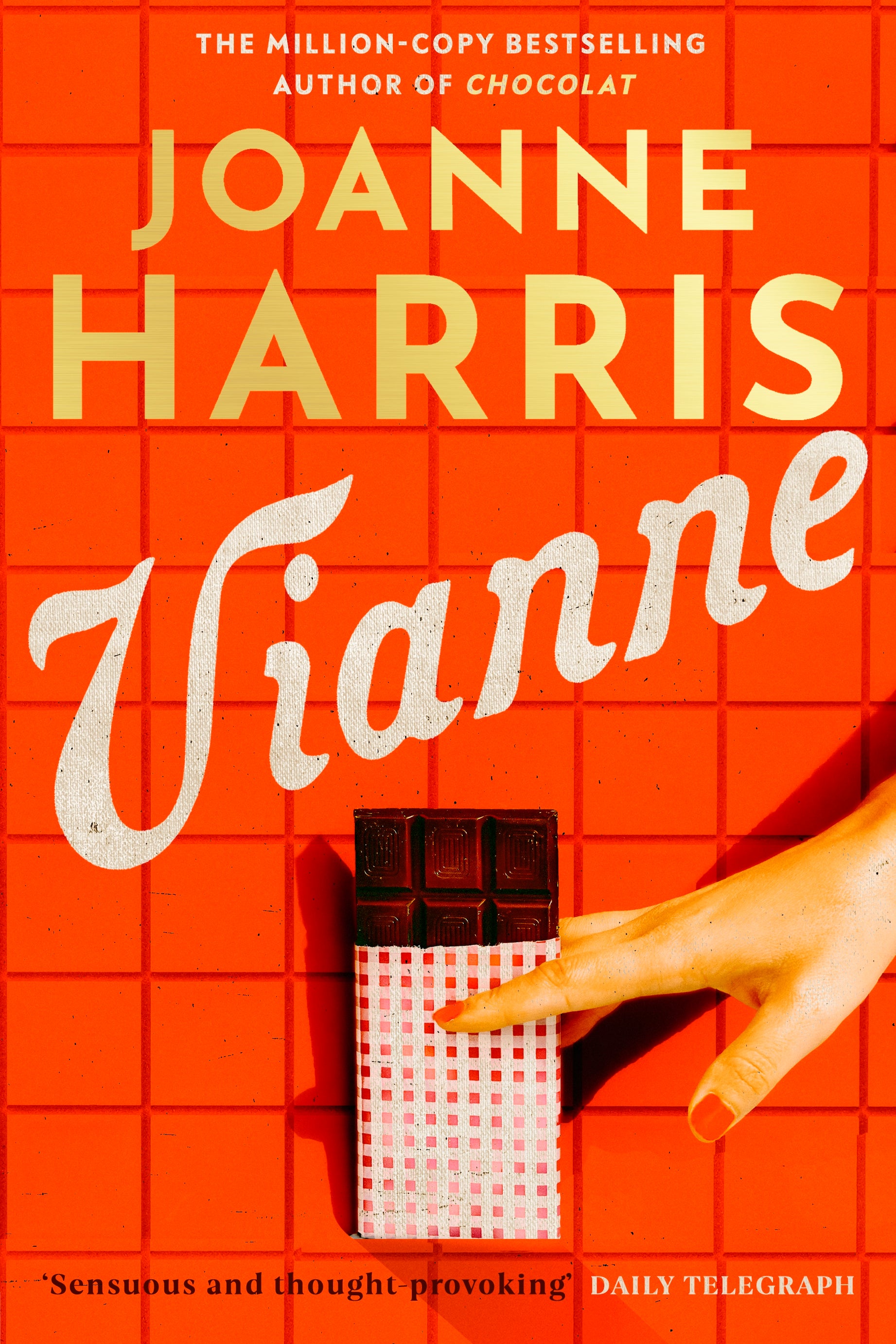
Though being outspoken on issues from sexism in publishing to the censoring of literature is nothing new, Harris’s experience of breast cancer – she was diagnosed in 2020 and declared cancer-free in 2023 – has possibly emboldened her further. “I’ve always had these opinions, and I’ve always made them clear in my books, and I’ve always been on the side of tolerance and inclusivity,” she says. “But I think having cancer gave me a certain perspective on life – how precious it is, and how important it is to look at who we are and where we’ve come from, and what we believe. And to speak out, as Vianne often does.”
No, Joanne Harris is not Vianne, and vice versa. But the more you talk to the author, the more you see the same spark that lights up her most famous character at work in her, too. If our favourite French patron saint of the underdog can’t be real, her creator might just be the next best thing.
Joanne Harris is appearing at this year’s Hay Festival. She’ll be discussing ‘Vianne’ with Julia Wheeler on 23 May at 5.30pm, and interviewing Florence Knapp about her new novel ‘The Names’ on 23 May at 8.30pm. Click here to book tickets: hayfestival.com


